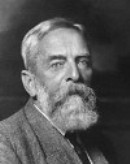Summary
Menger advanced his theory that the marginal utility of goods, rather than labor inputs, is the source of their value. This marginalist theory solved the diamond-water paradox that had been puzzling classical economists: the fact that mankind finds diamonds to be far more valuable than water although water is far more important.

The paradox of value is the apparent contradiction that, although water is on the whole more useful, in terms of survival, than diamonds, diamonds command a higher price in the market. The philosopher Adam Smith is often considered to be the classic presenter of this paradox, although it had already appeared as early as Plato's Euthydemus. Nicolaus Copernicus, John Locke, John Law and others had previously tried to explain the disparity.
Menger stressed uncertainty in the making of economic decisions, rather than relying on "homo economicus" or the rational man who was fully informed of all circumstances impinging on his decisions. This was a deviation from classical and neoclassical economic thought. Menger asserted that such perfect knowledge never exists, and that therefore all economic activity implies risk. The entrepreneurs' role was to collect and evaluate information and to act on those risks.
The term homo economicus, or economic man, is a caricature of economic theory framed as a "mythical species" or word play on homo sapiens, and used in pedagogy. It stands for a portrayal of humans as agents who are consistently rational and narrowly self-interested, and who usually pursue their subjectively-defined ends optimally.
Menger saw that time was the root of uncertainty within economics. As production takes time then producers have no certainty on the supply or demand for their product. Thus the price of the finished product bears no resemblance to the costs of production, since the two represent market conditions at very different points in time.
The labour theory of value was the explanation that had been reached by Adam Smith among others, and the Marxist school of economics still relies on this theory. The labour theory of value was that the value of an object was reliant on the labour that had gone into producing it, including any training or investment that supplemented the labour.

Adam Smith was a Scottish economist, philosopher and author as well as a moral philosopher, a pioneer of political economy and a key figure during the Scottish Enlightenment, also known as ''The Father of Economics'' or ''The Father of Capitalism''. Smith wrote two classic works, The Theory of Moral Sentiments (1759) and An Inquiry into the Nature and Causes of the Wealth of Nations (1776). The latter, often abbreviated as The Wealth of Nations, is considered his magnum opus and the first modern work of economics. In his work, Adam Smith introduced his theory of absolute advantage.
According to neoclassical economists the labour theory of value could not explain fluctuating values for different kinds of labour, nor did it explain how found goods could be more valuable than extracted goods.
As the price of a commodity is the average cost of production, it includes the fact that a tiny proportion of commodities may be found, although finding goods is hardly typical of modern manufacturing processes.
Marginal utility as the source of value meant that the perceived need for an object was seen to be dictating the value, on an individual rather than a general level. The implication was that the individual mind is the source of economic value.
Although Menger accepted the marginal utility theory, he made deviations from the work of other neoclassical pioneers. Most importantly he fundamentally rejected the use of mathematical methods insisting that the function of economics was to investigate the essences rather than the specific quantities of economic phenomena.

Economics is the social science that studies the production, distribution, and consumption of goods and services.
Microeconomics is a branch of economics that studies the behaviour of individuals and firms in making decisions regarding the allocation of scarce resources and the interactions among these individuals and firms.
Neoclassical economics is an approach to economics focusing on the determination of goods, outputs, and income distributions in markets through supply and demand. This determination is often mediated through a hypothesized maximization of utility by income-constrained individuals and of profits by firms facing production costs and employing available information and factors of production, in accordance with rational choice theory, a theory that has come under considerable question in recent years.

In economics, a commodity is an economic good or service that has full or substantial fungibility: that is, the market treats instances of the good as equivalent or nearly so with no regard to who produced them. Most commodities are raw materials, basic resources, agricultural, or mining products, such as iron ore, sugar, or grains like rice and wheat. Commodities can also be mass-produced unspecialized products such as chemicals and computer memory.

A price is the quantity of payment or compensation given by one party to another in return for one unit of goods or services.. A price is influenced by both production costs and demand for the product. A price may be determined by a monopolist or may be imposed on the firm by market conditions.

Friedrich Freiherr von Wieser was an early economist of the Austrian School of economics. Born in Vienna, the son of Privy Councillor Leopold von Wieser, a high official in the war ministry, he first trained in sociology and law. In 1872, the year he took his degree, he encountered Austrian-school founder Carl Menger's Grundsätze and switched his interest to economic theory. Wieser held posts at the universities of Vienna and Prague until succeeding Menger in Vienna in 1903, where along with his brother-in-law Eugen von Böhm-Bawerk he shaped the next generation of Austrian economists including Ludwig von Mises, Friedrich Hayek and Joseph Schumpeter in the late 1890s and early 20th century. He was the Austrian Minister of Commerce from August 30, 1917 to November 11, 1918.
The theory of imputation is based on the so-called theory of factors of production proposed by the French economist Jean-Baptiste Say and elaborated by the American economist John Bates Clark in his work The Distribution of Wealth. The proponents of the theory of imputation see its main task as elucidating which parts of wealth may be attributed (imputed) to labor and capital respectively.
Marginalism is a theory of economics that attempts to explain the discrepancy in the value of goods and services by reference to their secondary, or marginal, utility. The reason why the price of diamonds is higher than that of water, for example, owes to the greater additional satisfaction of the diamonds over the water. Thus, while the water has greater total utility, the diamond has greater marginal utility.
Classical economics or classical political economy is a school of thought in economics that flourished, primarily in Britain, in the late 18th and early-to-mid 19th century. Its main thinkers are held to be Adam Smith, Jean-Baptiste Say, David Ricardo, Thomas Robert Malthus, and John Stuart Mill. These economists produced a theory of market economies as largely self-regulating systems, governed by natural laws of production and exchange.
In economics, time preference is the current relative valuation placed on receiving a good at an earlier date compared with receiving it at a later date.

In Karl Marx's critique of political economy, commodity fetishism is the perception of the social relationships involved in production not as relationships among people, but as economic relationships among the money and commodities exchanged in market trade. As such, commodity fetishism transforms the subjective, abstract aspects of economic value into objective, real things that people believe have intrinsic value.
The subjective theory of value is a theory of value which advances the idea that the value of a good is not determined by any inherent property of the good, nor by the amount of labor necessary to produce the good, but instead value is determined by the importance an acting individual places on a good for the achievement of his desired ends. The modern version of this theory was created independently and nearly simultaneously by William Stanley Jevons, Léon Walras, and Carl Menger in the late 19th century.
Use value or value in use is a concept in classical political economy and Marxian economics. It refers to the tangible features of a commodity which can satisfy some human requirement, want or need, or which serves a useful purpose. In Karl Marx's critique of political economy, any product has a labor-value and a use-value, and if it is traded as a commodity in markets, it additionally has an exchange value, most often expressed as a money-price. Marx acknowledges that commodities being traded also have a general utility, implied by the fact that people want them, but he argues that this by itself tells us nothing about the specific character of the economy in which they are produced and sold.
A theory of value is any economic theory that attempts to explain the exchange value or price of goods and services. Key questions in economic theory include why goods and services are priced as they are, how the value of goods and services comes about, and—for normative value theories—how to calculate the correct price of goods and services.

John Bates Clark was an American neoclassical economist. He was one of the pioneers of the marginalist revolution and opponent to the Institutionalist school of economics, and spent most of his career as professor at Columbia University.
Economic value is a measure of the benefit provided by a good or service to an economic agent. It is generally measured relative to units of currency, and the interpretation is therefore "what is the maximum amount of money a specific actor is willing and able to pay for the good or service"?
In economics, utility is the satisfaction or benefit derived by consuming a product; thus the marginal utility of a good or service is the change in the utility from an increase in the consumption of that good or service.
Criticisms of the labor theory of value affect the historical concept of labor theory of value (LTV) which spans classical economics, liberal economics, Marxian economics, neo-Marxian economics, and anarchist economics. As an economic theory of value LTV is central to Marxist social-political-economic theory and later gave birth to the ideologically motivated concepts of exploitation of labour and surplus value. LTV criticisms therefore often appear in the context of economic criticism, not only for the microeconomic theory of Marx, but also for Marxism, according to which the working class was exploited under capitalism.











